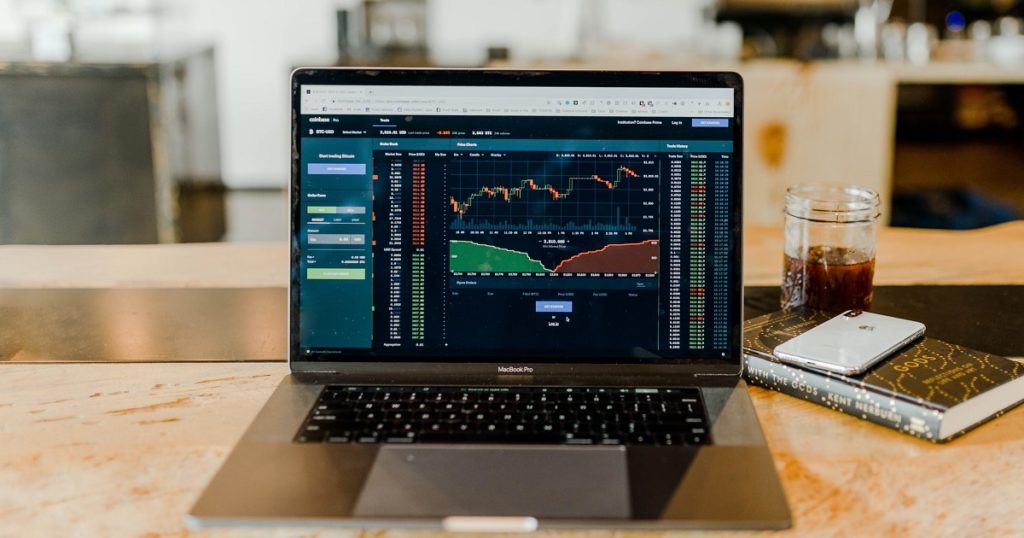
Where there are no oxen, the manger is empty, but from the strength of an ox come abundant harvests.
Proverbs 14:4
If ever there was a verse illustrating Bible investment principles, this is it.
To understand Proverbs 14:4, we first need to understand what oxen were used for in Biblical times — and especially in the context of farming. In short, they did everything! Farmers used them to plough fields, thresh grain and grind flour. They also used them as beasts of burden and as draught animals to haul harvested crops or transport produce to markets where they could trade grain or flour for other commodities.
This verse leads with the fact that taking care of oxen is a messy business. Their food and water-troughs need to be replenished daily and cleaned on a regular basis. Furthermore, they make a mess. Their shelters need mucking and straw needs to be brought in, requiring constant care and attention. They may even get injured and require expensive medical treatment.
In Solomon’s day, many farmers might have been tempted to ignore Bible investment principles. They might opt to forego all of that pain and effort by choosing not to own any oxen at all. Where there are no oxen, the manger, or food trough, is empty (i.e. clean). Their barns would have a neat and empty manger, with no food to clean up and no floors to muck. No straw to fetch or carry and no animals to care for.
This reasoning may have seemed sound to a farmer, in Old Testament times. After all, their vision, when they acquired the farm, was to raise crops, not livestock. Filling food-troughs, mucking out barns and tending for sick animals was not what they signed up for.
But…
Such thinking went against Bible investment principles according to Proverbs 14:4. Why? Because it was short-sighted. Because oxen have the ability to plough orders of magnitude more land than a person on their own. As the proverb states, from the strength of an ox come abundant harvests. A pair of oxen could plow roughly one acre per day, allowing for a rich, large crop.
Without any oxen, a farmer would have to use a stick or shovel to break up soil. Alternatively, he could pull a plow himself. Either way, he would never come close to one acre per day. Nor could that farmer till the soil as deeply or consistently as he might with the oxen. In other words, without the oxen, a farmer would face season after season of back-breaking work in return for a very small crop.
As such, Proverbs 14:4 serves as a shining example of Bible investment principles.
What did the oxen offer a farmer? In a word — leverage!
An Old Testament farmer could increase productivity by acquiring assets, in the form of oxen, that were able to produce a harvest that he was unable to produce by the sweat of his own brow.
By taking the time to understand how to care for these beasts and, by being prepared to deal with the additional mess they might make, farmers were able to increase the size of their harvests exponentially. Yes, it meant that a crop-farmer would have to expand their knowledge-base in a new area (i.e. livestock), but the rewards far outweighed the additional cost of both effort and skill required to manage a pair of oxen.
Bible Investment Principles in the Modern Economy
So how might we apply the Bible investment principles of this verse in our own lives today? Let’s take a look at the types of “oxen” we might acquire in the modern economy — and then consider some of the common responses.
Real Estate

A rental property offers the ability to produce a passive income in the short term as well as capital growth over time.
However, this is the common response. ‘I don’t want the maintenance headache. You forever have to fix water tanks, heating, plumbing etc. It’s too much work!’
And what about, ‘Tenants make such a mess of your property! They’re always breaking stuff. And what about tenants who don’t pay their rent? I don’t have time to deal with all the legal aspects of evicting people!’
In response, Proverbs 14:4 says… Where there are no oxen, the manger is empty, but from the strength of an ox come abundant harvests.
Equities — Stocks & Shares

Investment in stocks and shares can offer substantial gains. Depending on the shares you buy, they can also pay out dividends, usually once or twice a year, which you, the investor, can either use as additional income or reinvest in more shares, thus compounding your capital growth over time.
However, this is a common response. ‘Stock market investment is risky. All it takes is one crash and you could lose everything. I don’t want to spend my evenings and weekends reading the Financial Times or scouring the financial section of the newspaper.’
Or what about, ‘It’s too hard! I don’t have the energy to get my head around all those numbers. Do you know how much studying you would have to do before you understood enough to make that type of investment work for you?’
In response, Proverbs 14:4 Bible investment principles say… Where there are no oxen, the manger is empty, but from the strength of an ox come abundant harvests.
Buying or Starting a Business
A business comes with its own set of risks but, if done right, it also offers massive opportunities. Some of the biggest financial gains are attributed to entrepreneurs who started their own company and / or acquired other companies along the way. A business can produce substantial income and can be sold, either as a whole or in part, for a massive pay-day.
However, the common response is, ‘Starting a business is a huge risk. Chances are you will work seventeen hours a day for zero pay. What if you go bankrupt? Employees are a pain to manage. They don’t care about your vision; they are lazy and call in sick at every opportunity. Some of them even steal from you. Running a business is a bad idea’
Or some might say, ‘You have no idea how much work it takes to run your own business. The learning-curve is massive! Just because you know how to make a burger doesn’t mean you know how to run McDonalds.’
The above is all true. A business can be a beast to run and maintain. But…
In response, Proverbs 14:4 Bible investment principles say… Where there are no oxen, the manger is empty, but from the strength of an ox come abundant harvests.
Other Investment Opportunities

Of course, there are a myriad of other types of investment. These could include Intellectual Property investments such as:
- Writing songs/ music
- Writing books or
- Film scripts
Common objections here might be, ‘There’s no money in it. For every writer or musician that makes it big, there are ten thousand that don’t.’
… or what about other asset classes like:
- Crypto-Currencies (E.g. Bitcoin)
- Commodities (E.g. gold/silver)
- Foreign Currencies (Forex)
Each of the above asset classes comes with its own risk/reward profile. Consequently, acquiring and managing each comes with its own demands and requires a specific skill-set.
By extension, each of these asset classes will raise a different set of common objections in the mind of the average “farmer” in the modern economy. Whatever your personal objections might be to any, or all, of these asset classes…
In response, Proverbs 14:4 Bible investment principles say… Where there are no oxen, the manger is empty, but from the strength of an ox come abundant harvests.
Where There are no Oxen — the Modern Economic Equivalent

Each of the abovementioned “oxen” is a very different type of beast. Each requires a specific skill-set along with its unique learning curve. Each will require a different management strategy and each will place its own demands on your time and energy.
However, when cared for properly, from the strength of an ox come abundant harvests. Some of the above “beasts” may appear more daunting than others. You may look at one and simply say, ‘Never! That asset class is not for me. Not under any circumstances.’
That is okay.
But to consistently reject all of them is to say, ‘Where there are no oxen, the manger is empty.’ This is as short-sighted in the modern economy as it was when Solomon wrote this proverb. Because from the strength of an ox come abundant harvests.
By steadfastly refusing to acquire an ox, we tacitly agree to tilling the ground with a shovel or pulling the plough ourselves — and we will reap the equivalent harvest; in a word, small.
So what does a small harvest look like in the modern economy? To my mind, it looks like much of my working life. It looks like my parents and, frankly, most of my peers.
Waking up at five o’clock in the morning to leave the house at six. Facing a one-to-two hour commute to the office in grueling traffic or shoulder-to-shoulder on public transport. Spending eight-to-ten hours working in a job that I sometimes enjoy and, other times, hate. Either way, it is a job that has zero eternal value. Then enduring the reverse one-to-two hour commute back home… and doing this over and over; five days a week for the best part of fifty years!
In return for this, my harvest is a living wage. It pays the rent and covers the monthly bills. It puts food on the table and buys my Netflix or Amazon Prime subscription. This offers me an hour’s respite after making dinner and putting the kids to bed. Just as well because an hour of mindless TV is about the only thing I have any energy left for by the end of such a day. After that, sleep… so I can muster up the energy for my next five o’clock alarm call.
… all because I resolutely refused to acquire an ox. Oxen are messy and too much work. Go figure!
NOTE: This article should NOT be construed as investment advice. It is an illustration of how scripture supports the wisdom of investment, in general.
